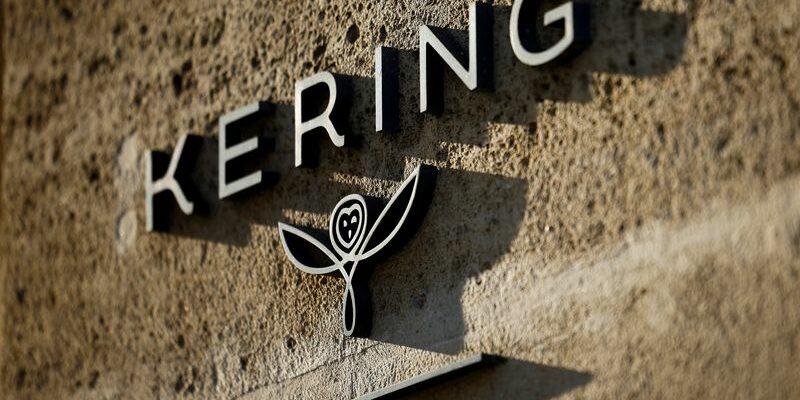PARIS (Reuters) – Kering reported a 7% like-for-like decline in fourth-quarter sales on Wednesday as COVID-19-related health restrictions in China weighed heavily on its flagship brand Gucci.
Sales of the latter fell over the period by 14% on a like-for-like basis, the temporary store closures due to Beijing’s “zero-COVID” policy having weighed heavily on the network of directly owned stores.
According to a Visible Alpha consensus quoted by UBS, Kering’s sales were expected to fall 3% like-for-like in the fourth quarter, with Gucci down 11%.
On the Paris Stock Exchange, the Kering share fell 3.1% to 542.20 euros in the first exchanges, showing the largest drop in the CAC 40, up slightly at the same time.
Beyond the difficulties encountered by Gucci at the end of 2022, the brand has been experiencing a marked slowdown in recent years.
Its chief creative officer, Alessandro Michele, left the house abruptly in November after seven years in the role following tensions with Kering management, sources told Reuters.
The luxury group last month appointed Sabato De Sarno to replace him, with the mission of giving new impetus to the brand.
Gucci, the French group’s main profit center, saw its sales increase by only 1% like-for-like over the whole of 2022, against double-digit increases for other Kering brands such as Yves Saint Laurent (+ 23%) and Bottega Veneta (+11%).
Its current operating profit stagnated at 3.73 billion euros, while that of Yves Saint Laurent jumped 43% to exceed one billion euros.
POSITIVE INFLECTION
Gucci’s performance in 2022 “does not live up to our expectations, but we are very confident about what we are committing to for the brand in 2023,” said chief financial officer Jean-Marc Duplaix during a meeting. a conference call with journalists.
Sabato De Sarno is due to present his first collection at Gucci in September, which has some analysts saying it will be some time before he can imprint any momentum on the brand.
“We believe this release still leaves questions open, including how long and at what cost it will take to have a positive inflection at Gucci and whether Saint Laurent’s remarkable growth will begin to normalize,” the statement said in a statement. notes analysts at JPMorgan.
Competitor LVMH, which owns the Dior, Louis Vuitton, Sephora and Hennessy brands, among others, reported last month organic growth of 9% in the fourth quarter, after +20% in the previous quarter, hampered also by health restrictions in China.
“VERY ENCOURAGING” START OF THE YEAR IN CHINA
Since then, Beijing has ended its “zero-Covid” health policy, which has given the sector hope for a resumption of spending by Chinese customers on luxury goods.
The start of the year was “very encouraging” in China, commented Kering’s chief financial officer, Jean-Marc Duplaix.
In total, Kering’s operating profit in 2022 stands at 5.59 billion euros, up 11%, but the operating margin fell to 27.5% against 28.4% a year earlier.
For 2023, Kering expects a “profitable growth trajectory” despite the persistence of short-term economic and geopolitical uncertainties. It is aiming for high cash flow generation and high return on capital employed.
“The forecast is relatively vague and we believe the key questions for investors today will be the expected trajectory of revenue trends for 2023, as well as the investments (and margin implications) to go there. achieve,” Credit Suisse analysts noted in a note.
(Written by Blandine Hénault, with contributions from Mimosa Spencer and Piotr Lipinski, edited by Matthieu Protard and Kate Entringer)
©2023 Thomson Reuters, all rights reserved. Reuters content is the intellectual property of Thomson Reuters or its third party content providers. Any copying, republication or redistribution of Reuters content, including by framing or similar means, is expressly prohibited without the prior written consent of Thomson Reuters. Thomson Reuters shall not be liable for any errors or delays in content, or for any actions taken in reliance thereon. “Reuters” and the Reuters Logo are trademarks of Thomson Reuters and its affiliated companies.
